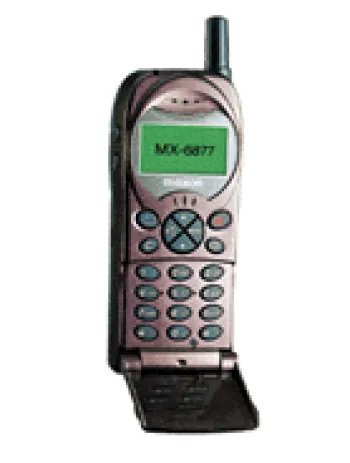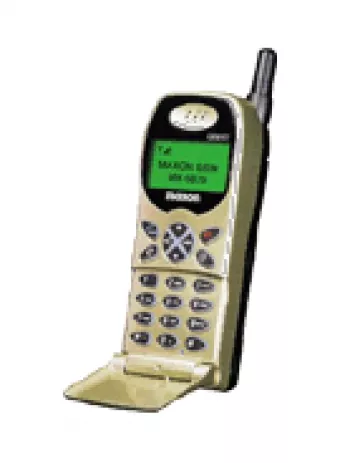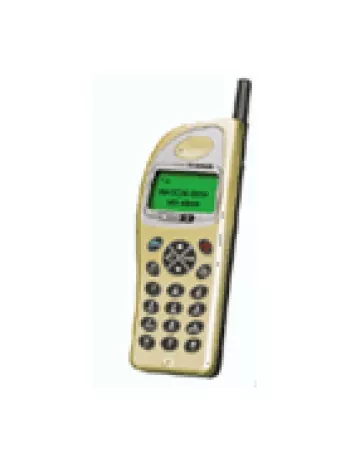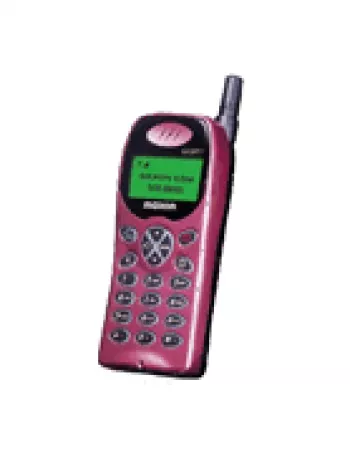
Overview of Maxon MX-6877
The Maxon MX-6877 is a classic feature phone that was introduced in the year 2000. With its focus on basic communication needs rather than modern smartphone capabilities, the device has distinctive features that define early cellphone models. The Maxon MX-6877 represents a simpler time in mobile communication technology, prioritizing function and durability over more sophisticated features.
Technical Specifications
Network
The Maxon MX-6877 operates on GSM technology, specifically supporting the GSM 900 band. This was a standard frequency for many phones during its time, enabling voice calls within European nations and other regions using the same band. Notably, the phone does not support GPRS or EDGE technology for data services, restricting its use to voice calls and basic SMS messaging.
Launch
Released in the year 2000, the Maxon MX-6877 is now categorized under discontinued models. At the time of its release, it catered to consumers looking for reliable voice communication without the distractions of modern smart features.
Body and Design
The phone’s dimensions are 110 x 43 x 22 mm (4.33 x 1.69 x 0.87 in), and it weighs approximately 135 grams (4.76 ounces). It features a compact, robust design typical of mobile devices from that era. Equipped with a Mini-SIM slot, the design focuses on simplicity and ease of use. The phone was offered in five different colors, catering to varied aesthetic preferences.
Display
The Maxon MX-6877 features a monochrome graphic display. While the precise size of the display is unspecified, it has a resolution capable of showing 4 x 12 characters. This is indicative of its straightforward interface, displaying only essential information necessary for text communications and call logs.
Memory
When it comes to storage, the Maxon MX-6877 does not include a card slot for expandable memory. It features a basic phonebook and call records functionality, including the ability to track up to 20 dialed calls, which aligns with its purpose as a communication-centric device.
Sound
The audio capabilities in the Maxon MX-6877 are elementary. Most notably, it does not feature a loudspeaker or a 3.5mm headphone jack. The phone supports monophonic ringtones for alerts, which was standard at that time.
Communication Features
Maxon MX-6877 lacks contemporary communication features like WLAN, Bluetooth, GPS positioning, and radio. This absence highlights the device’s focus on fundamental cellular communication, keeping its operations simple and battery-efficient.
Functional Features
The phone offers basic utilities like SMS messaging, a clock, and an alarm feature. It does not support a browser or Java capabilities, which reflects its design as a feature phone rather than a multi-purpose smart device.
Battery Life
Powered by a removable NiMH 600 mAh battery, the Maxon MX-6877 is designed to offer up to 100 hours of standby time and around 4 hours of talk time. This level of battery performance was respectable for the era, making it a reliable device for users focusing on voice communication.
User Experience
Although the Maxon MX-6877 lacks the advanced functionalities of modern smartphones, it provided seamless user experiences for its time. It offered a straightforward interface for making and receiving calls and sending text messages. The lack of complex features means it required minimal maintenance and ensured longer battery life, crucial for users who needed a dependable communication tool.
Conclusion
The Maxon MX-6877 remains an artifact of early mobile technology, embodying the essence of straightforward communication tools. It served its primary purpose of voice communication effectively, a trait which many users of the era found invaluable. Though it seems antiquated today, it reflects an important stage in the evolution of mobile devices, when durability and functionality were the primary market demands.
Key Features of Maxon MX-6877
- Compact dimensions: 110 x 43 x 22 mm
- Lightweight: 135 g
- Monochrome graphic display
- Support for GSM 900 network
- Mini-SIM card compatibility
- Removable NiMH 600 mAh battery
- Stand-by time of up to 100 hours
- Talk time of up to 4 hours
- Monophonic ringtones
- SMS messaging capability
- Includes clock and alarm features
Disadvantages of Maxon MX-6877
- GSM only technology, not compatible with modern networks.
- No GPRS or EDGE support for data connectivity.
- Discontinued status, no support or updates available.
- Monochrome graphic display with low resolution (4 x 12 chars).
- No expandable memory, no card slot available.
- Limited call records storage: only 20 dialed calls.
- No camera feature included.
- Lacks a loudspeaker and 3.5mm audio jack.
- No modern connectivity features: no WLAN, Bluetooth, GPS, or Radio.
- Basic messaging capability limited to SMS only.
- No support for Java applications.
- Limited battery standby time (100h) and talk time (4h).
View Also
More Phones
All Rights Reserved +14266 Phones © Mobilawy 2025

























